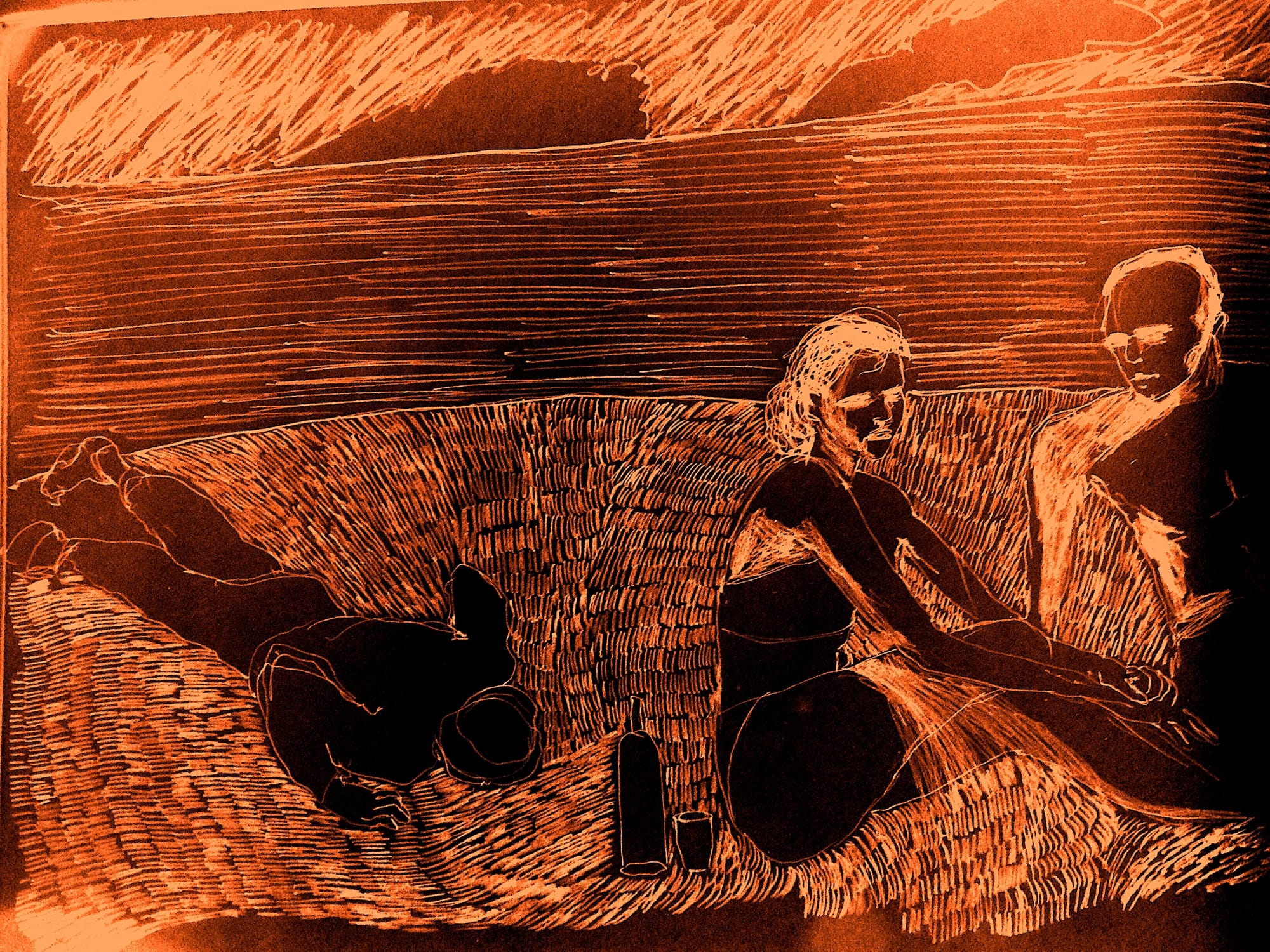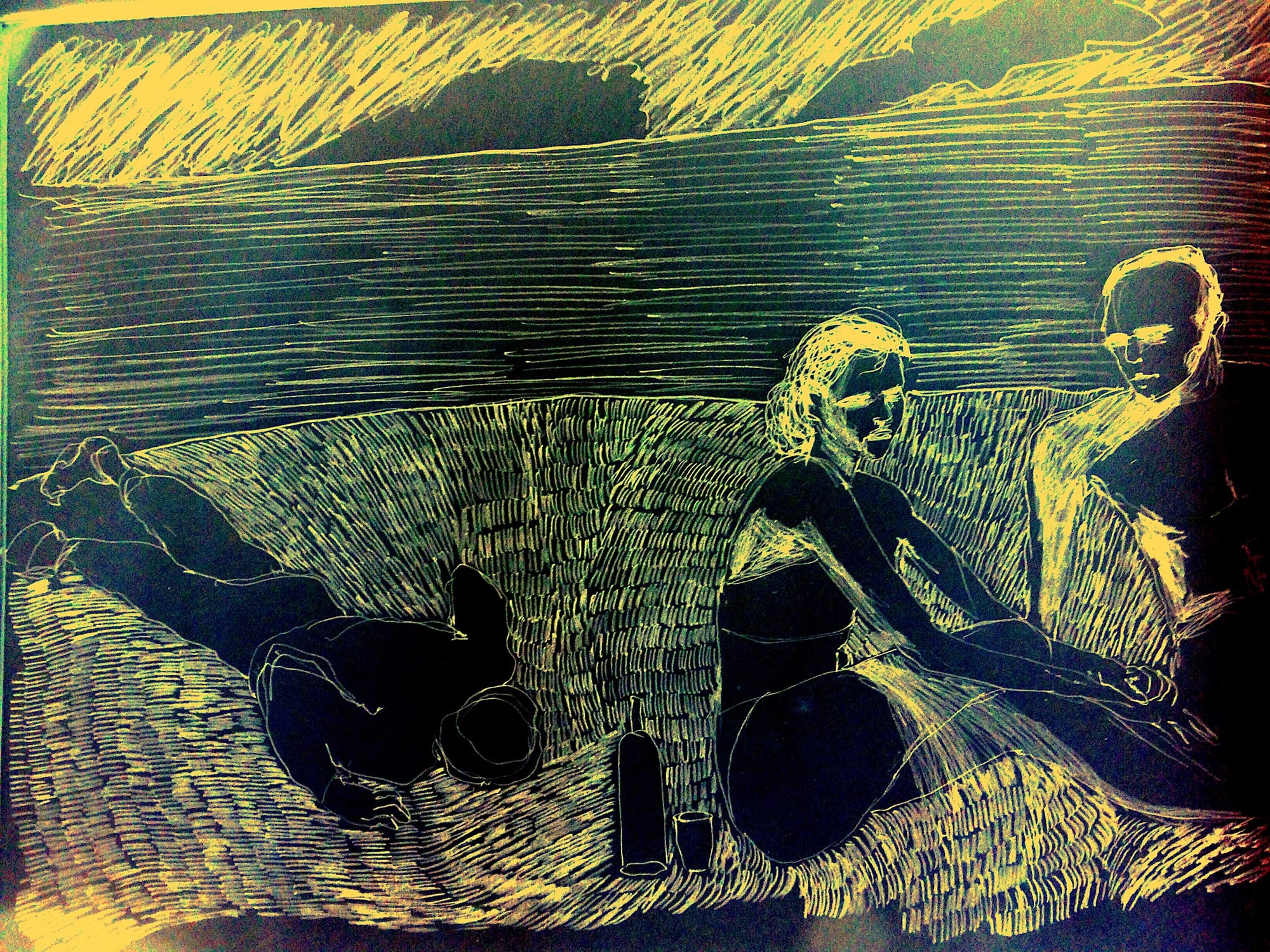The Ecstatic Silence: 41

Next Chapter
However you look at it, he went through a phase mediated by one-sidedness recalled as brutal violence. The killing of the bullying of the humiliating of the eroding of the raping of the beating of the forming of the…
English is the great nominalising language. It can nominalise any verb and at the same time preserve the verb’s quality as a verb. The gerund is an exchanger between grammatical forms. Language remains in permanent flux and indeterminacy. The translator is continually stuck between its flight and message. It minimizes the gap between verb and noun. It twists away from the fact. It retains only the event. Events become expectations rather than accomplishments. The progressive indicates it’s begun but not yet done. At last Johnny was seeing his true fate. This wasn’t a point about duration. He was hearing voices. Knowing was rarely progressive. He seemed mixed up. It cannot fail to have been noticed. He be being made a present concern for his past or future pains, no pleasures. Reversibility prevents reification. This ease has a flip side. It forgoes translation.
He walks to school. He walks a mile. He meets a bunch of miners. They steal his book and tear it up. One of them punches his face. He arrives and fights with a boy who speaks ill of his blood face. It is a standoff. He sits as the teacher mocks his stumbling blocks. The girl with derivatives mocks his face and unaccountability. He fights at break time with the boy doing the same. He provokes silence from groups. He fails a test. He is sent down a hallway. He is rapped on knuckles by a long thin teacher. He takes dinner preeminently to avoid. Some boys seek him out as if amusing technocrats. He fights with the one at the front in agreement with them. He stands by the fields’ edge and watches the vague groups that seem models of clay. The school bell is a cut. A girl pulls out her tongue like a reinvestment. He stands in the playing field as rain drenches him. The football is always over there. The fabric of the afternoon is a dark portmanteau yielding the opposite of health. He tackles a boy with the ball and kicks the ball as if a minister to the eternal. He doesn’t shower but runs home. He eats to hide. Reegan hits his head when he indicates less than he should. His mouth has two translations. He stands by the wall near the greenhouse and observes the tomato plants thinking about the somber, sick and saturnine day where thunder is readied all day but never arrives at night. He performs a precise and definite about turn in a concrete manner. Reegan beats his back with a hose pipe. There is a fierce conservation in this. A German constancy resolves certain questions like a surgeon. He sleeps on his front to avoid getting blood on the sheets. He settles for holding up. He tries to finish his breakfast. The porridge is like a way employment gets tipped out. His mother pulls his hair when he shows his book. He walks to school. It is the usual mile. The miners take his book. They tear it to shreds. One of them punches his face. They laugh as they walk on. He fights with a boy who mocks his bloody condition. A teacher punishes him with a wooden ruler across his knuckles. He sits at the back feeling interest draining off. The maps on the classroom wall are beautiful higher abstractions than he’s used to. He feels warm and happy. A girl pulls out her tongue at him. A boy flicks a paper ball at his forehead. He remains semi-conscious of them. They become abstractions valid only within the vicious limits of the point of view within which they are projected. He is pushed onto the floor on a corridor and his thumb is bruised by being bent too far. There are constellations of these. He eats with his head turned away. A large older boy makes him kneel on iron gratings so the metal cuts in. He fights with a small boy who kicks him whilst walking. He assumes an aspiration of submission but then reverses. He wonders about his dependency on maintaining a position outside of them. He walks home into the clutches of his own conduct. He can’t do the homework set and stares out. He walks to the top of the stairs and looks down. He walks to the fields and stares at the coking plant and the engines of culminating agonies. He sees the starlings and remarks on their colours. He is tempted by the oblivion of grass. He takes a neo-classicist stance against totalitarians and reductionists. He half-closes his eyes to blur things. He feels the cold as a matter of collusion. Reegan points out the roses. His mother forces him to eat the pies. He chokes but remains the protagonist. He scurries for books under the table. He reads down there continually carrying with him a critical soliloquy. He reverses towards the vita contemplative. He marks the duration of humanity in terms of micro seconds. Animals stir around compounds of fear. His mother slaps him across and his lips bleed. His nose bleeds. His ears bleed. His eyes bleed. His ribs bleed. His fingers bleed. Reegan throws the book. Shouts so close to his face that he can hardly refer. He refutes sleep by rule of thumb. At the window there are stars and a moon, then clouds and raindrops. He walks to school. It is the usual mile. The miners ignore him. He hides his book. He fights a boy whose movements are wholly attributable to his group. A girl with red hair watches him without blinking. The teachers mock his answers. He refuses to speak more. He is disciplined with the wooden rod. He runs a cross-country. Mud hits the truth better. He smiles at the long distance between interest and the rest of them. His feet are frozen and wet fates. He plays the game with Greek ears. There is never anything more beautiful than the grey afternoon rainskies, the woodland and fields, the long winding tracks with rooks mad and alternating with the wild wind and the gasping tones. Everything was wonderful running like that. It was in accord with harmonies, echoes and resonances that came silently from the poems he read and the fantasies that he repeated. He ran on assuming that in this way he might exist. Towards these pale dark drenching skies he saw that he must exist this way and no other. He didn’t shower. The mud dried on his knees and calves. He was punched by a boy as he left the crowded changing room and threw a fist back to show he had the grasp that collects. His eyes were knots of bright reflection. He felt he matched himself. He ran down the lane home. He chewed the food. He swallowed the food. He drank the juice. He stayed upright as if the meal reciprocated such a stance. His mother was more than image, therapist or tendency. Her hands liked to eliminate the self. Hers was a life of retreat and renunciation on his behalf. Her energies were about renouncing him. His nose bled for longer. This had connotations. It was flow as it’s own grounding. He lay clutching the bridge of his nose in a tight clamp between fingers. It was a kind of ascetic elimination. Always hope was this: bizarre and dreadful.
He walked to school. The mile was cold and a miner punched his face. A girl cried and blamed him. He was set upon by a mob. He bit several and raked eyes and cheek bones. There was the despair of all solutions to despair. It would never be good enough to be right. All these tricks were useless. He cleaned up in the washroom alone. There were whispers of outsiders coming. He shrugged. He came bottom in a test. He forgot to write down homework. He handed in homework late. He coloured in maps but ran out of colours. A girl watched him without blinking. He ate in the canteen with his admissible face and a sort of universal look. His calmness was a semantic trick. He continued to hate French. He was inclined towards closing his eyes for periods of non-conformity. He stayed in the school library until it closed. He stole the odd book. He stuffed them in his bag. He left the school when it was nearly empty. He felt that he was a phase of the process. He was well beyond the mouth of the rivers is how he put it. He sat on grass banks and read the books. He turned the pages as if next would come release. He sought the secretive remnants. The passage from this moment to any other is scarce. There was an accumulating weight in all this. He walked up the lane. A boy tried to punch him but he dodged. A big boy tripped him up. Everyone laughed down at him. He spat at their faces. His mother smashed his head against a door. Reegan beat him with the plastic hose pipe. He slept on his front so as not to bleed on the sheets. He read so that he could condition existence against limitlessness. He buried a pet. He listened to owls marking their equivalence. He contrasted pairs and twins. He was paid to babysit next door. They left early evening and came back late. He watched their tv. He watched everything he could. He never tried to explain anything. He sat and watched the tv, he remained largely insensate and unconscious. There was , he recalled, another blind woman. Not with gin-coloured eyes. Her eyes were blank and large and had grey film across them. Her face was larger. Her limbs spread like frost. She was a kind of emphasizing. With her, he thought, I am well beyond the mouth of the river. The winter sun was what froze certain conditions. The summer sun picked up his limits and refused verbs. Autumn was a strange sort of willing. Spring a damned eternity. All the seasons came and went as he walked up the lane to school and then back again. Day in and day out. Back and forth. Back and forth. Back and forth. Back and forth. So now we start.
